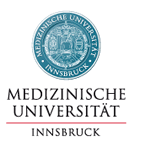About the Project
HIV-1 and Mycobacterium tuberculosis represent detrimental co-epidemics worldwide, particularly in sub-Saharan Africa, and co-infection accelerates progression of both diseases. Mechanisms promoting the pathogenicity during co-infection with M. tuberculosis and HIV-1 are largely unknown. In particular, the role of complement regarding accelerating factors during co-infection is understudied. We recently illustrated that complement (C) coating of HIV-1 (HIV-C) was able to overcome SAMHD1-mediated restriction in DCs and macrophages (own unpublished data) and thereby significantly increased DC activation and type I IFN and ISG production. Further, DCs illustrated a prolonged survival and opsonization might also exert an impact on viral or upon co-infection bacterial persistence in antigen-presenting cells (APCs), such as DCs or macrophages. These factors are poorly characterized in HIV-1/M. tuberculosis co-infection of APCs and especially within a realistic 3D microenvironment. Therefore, during the PhD project period, we want to investigate the effects of complement during HIV-1/M. tuberculosis co-infection in susceptible APCs within a standardized human 3D epithelial/immune cell model.
To achieve the goals, we will first characterize in detail, how complement affects APC function, e.g. internalization, antigen processing and presentation, co-stimulatory capacity, viral transmission, during HIV-1/M. tuberculosis co-infection and whether co-infection has any impact on survival and viral or bacterial persistence in APCs. Pathogens face different microenvironments in the host but data in in vitro experimental systems mostly ignore the impact of 3D tissue environments. Therefore, in a next step, a standardized tissue-like 3D culture will be included into the analyses to study the micro-environmental power on co-infection. Measurements of pathogen replication, persistence, infectivity, diffusion, cellular motility and interactions will be performed within the tissue-like 3D cultures and in presence of complement. Of note, beside viral assays routinely performed in the group of AT2, a sophisticated, high content screening (HCS) facility, the Operetta CLS system, will be employed to study these interactions in medium- to high-throughput within tissue like structures. Complementary knowledge on M. tuberculosis will be provided during the 6-months´ stay of AT-2 in Prof. Niemann´s group in Lübeck (Germany).
General description of your individual PhD-schedule:
• Your main university will be Medical University of Innsbruck (Austria) with Prof. Wilflingseder as supervisor.
• You will have a 6-months research secondment at University of Lübeck/Research Center Borstel (Germany) with Prof. Niemann as supervisor, where you continue to scientifically work on your thesis project.
• You will have a 1-month clinical training at University Hospital Helsinki (Finland).
• You will have a 1-month entrepreneur training at Research Center Borstel (Germany).
• You will finally receive a PhD issued by Medical University of Innsbruck and University of Lübeck if you fulfil the respective requirements.
Application
Please visit www.corvos.eu for application and more information on the PhD program. You have to submit: Application Form (see www.corvos.eu), CV, Master/MD/Diploma document, Abstract of Master/MD/Diploma thesis. Selected candidates will be invited for a personal interview to Innsbruck on 03rd/04thJan or 09thJan2020.
Funding Notes
The Marie Sklodowska-Curie project CORVOS, for COmplement Regulation and Variations in Opportunistic infectionS, is funded as an Innovative Training Network (ITN) – European Joint Doctorate (EJD). Its focus lies on education of young scientists in the field of complement in opportunistic infections. This interdisciplinary doctoral program is supported by 10 European universities, 2 research institutes, 3 biomedical companies and 3 hospitals. The PhD students will have enhanced career perspectives in the academic and non-academic sectors through international, interdisciplinary and inter-sectoral mobility combined with an innovation-oriented mind-set. Visit www.corvos.eu to see all the benefits that you will have as CORVOS PhDstudent.

 Continue with Facebook
Continue with Facebook

